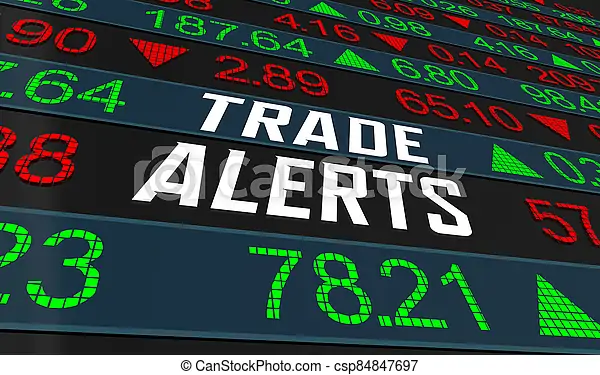MARKETS AND ECONOMY
Equities Market Flaunts N6.92trn Liquidity in New Trading Dynamics
Published
5 months agoon

The Nigerian capital market has witnessed a significant shift in trading dynamics through 2025, with liquidity levels swelling to N6.92 trillion as at August, compared to N3.48 trillion recorded in the same period of 2024.
The Nigerian Exchange Limited (NGX) reported this in its latest domestic and foreign portfolio participation in equities trading polls.
Read Also:
The trading data reflects renewed activity across both foreign and domestic investors, though domestic players continue to account for the lion’s share of transactions.
This comes on the underlying fundamentals stemming from the strong stability seen in the Naira so far this year and the monetary authorities’ accommodative monetary policy stance.
In January 2025, total market turnover stood at N607 billion, with foreign participation at just N71.5 billion or 11.78%, while domestic investors provided a commanding 88.22% (N535 billion).
By February, foreign inflows dipped to N42 billion accounting for just 8.37% of total trade on the floor of the local bourse, leaving the market heavily dependent on domestic liquidity.
However, March delivered a dramatic reversal with total transactions surging to N1.12 trillion, underpinned by a sharp rise in foreign participation to N699 billion, representing 62.74% of market activity.
This marked the first and only month within the period where foreign players overtook domestic investors, providing an early glimpse of returning offshore confidence.
Despite this spike, subsequent months saw foreign momentum taper off as foreign transactions fell back within the 8–18% range between April and July, while domestic investors once again drove activity.
By May, total turnover was N700 billion, with foreign inflows at just N119 billion or 16.98% share against domestic’s N582 billion or 83.02%.
In July, foreign transactions hit N146 billion, just 8.04% of total market trades, compared to a resurgent domestic contribution of N1.67 trillion or 91.96%.
However, the month of August reintroduced some foreign appetite, as offshore trades rose to N172 billion (18.91%), albeit still paled against domestic flows of N736 billion.
On a year-to-date basis, foreign transactions amounted to N1.45 trillion, or 21.01% of the N6.92 trillion total, while domestic investors contributed N5.46 trillion, a commanding 78.99%.
Breaking down domestic activity further, reveals that institutional investors remain the dominant force. As at August, domestic institutional trades hit N3.13 trillion within 8 months of 2025, compared to retail’s N2.33 trillion.
The gap is consistent with historical patterns, highlighting that pension funds, asset managers, and large corporates continue to provide market depth and resilience, while retail momentum still trails despite its growing numbers.
Foreign participation has been more volatile, oscillating between sharp surges in March and subdued activity in February and July, indicating offshore investors remain cautious.
Foreign inflows for the year to date stood at N700 billion, closely matched by outflows of N748 billion — underscoring a cautious “in-and-out” trading pattern rather than deep commitment to the market.
Market experts at Cowry Assets deduced that while foreign investors remain relevant, the Nigerian market is increasingly domestically driven, noting that local institutions in particular continue to anchor liquidity, cushioning volatility that could otherwise arise from fickle offshore flows.
They however noted that that the March spike was a reminder that when macro stability aligns with policy support such as exchange rate stability and dovish monetary actions, foreign funds can still re-enter at scale.
“Looking ahead, if the recent stability in the naira and easing monetary stance by the CBN are sustained, the balance could tilt toward higher foreign inflows, boosting overall liquidity and deepening equities market participation.
“But for now, the market story remains a domestic one: locals drive, foreigners hedge, and confidence rests on policy consistency,” they said in a note available to BUSINESS METRICS.
Share this:
- Click to share on X (Opens in new window) X
- Click to share on Facebook (Opens in new window) Facebook
- Click to share on WhatsApp (Opens in new window) WhatsApp
- Click to share on Pocket (Opens in new window) Pocket
- Click to share on Telegram (Opens in new window) Telegram
- Click to email a link to a friend (Opens in new window) Email
- Click to share on LinkedIn (Opens in new window) LinkedIn
You may like


NGX Records First Commercial Paper Listing with Dangote Cement’s N119.87bn Issuance


First HoldCo Plc Grows Earnings to N3.4 Trillion, Profit Declines on Heavier Impairment Charges


IMPACT: NGX Group, Lagos State and HEI Expand Project BLOOM to Alimosho


Equities Investors Gain N3.84 Trillion in First Full Trading Week of 2026


FG, SEC, NGX Group Forge Unified Direction on Capital Gains Tax Reform


Capital Gains Tax: Equities Investors Lose N1.5trn to Panic Selloffs












